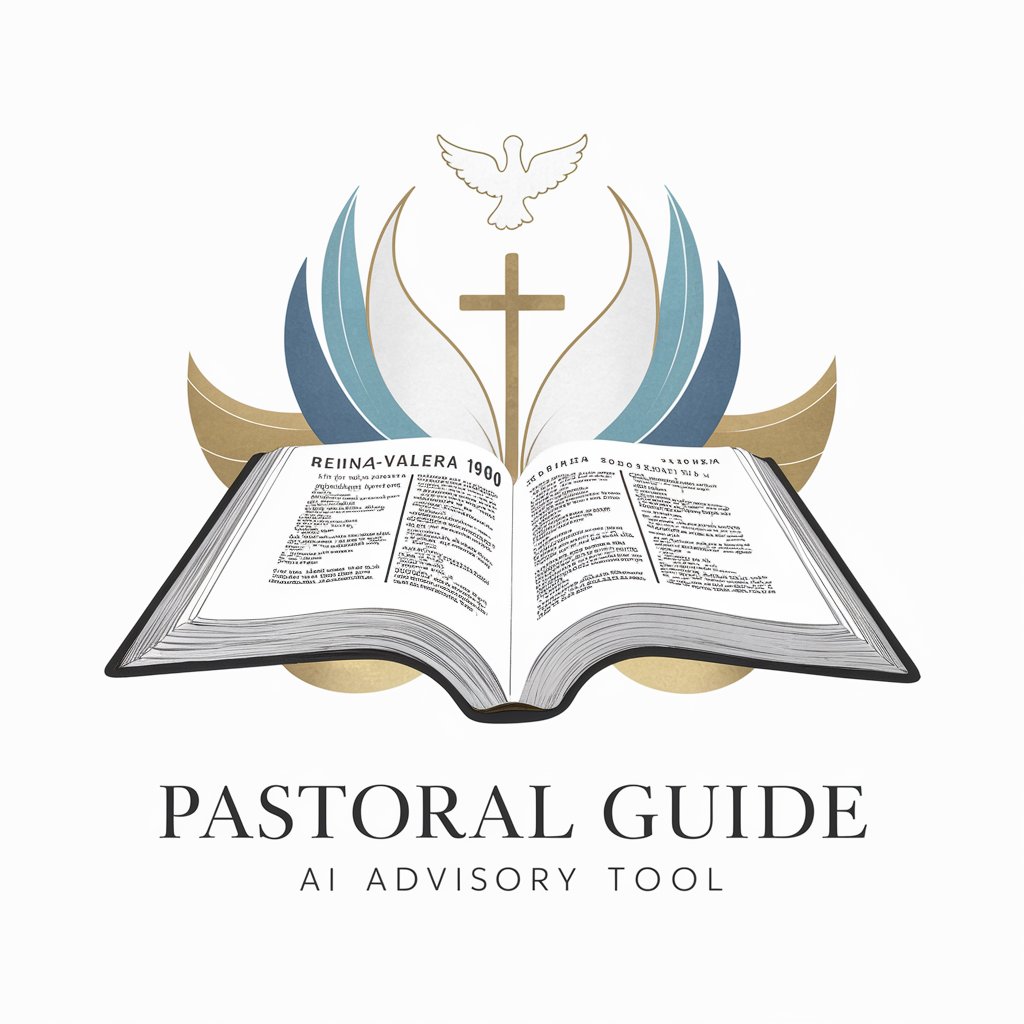16 GPTs for Biblical Teaching Powered by AI for Free of 2026
AI GPTs for Biblical Teaching refer to advanced artificial intelligence tools based on Generative Pre-trained Transformers designed to support and enhance learning, teaching, and understanding of Biblical content. These tools are specifically adapted to handle tasks and topics related to Biblical studies, offering personalized and dynamic learning experiences. They leverage the power of AI to interpret, explain, and discuss Biblical texts, themes, and principles in a way that is accessible and engaging for users. By providing tailored solutions, these GPTs play a crucial role in bridging the gap between technology and spiritual education.
Top 10 GPTs for Biblical Teaching are: Sermon Generator 👣 Step by Step,CMT&FCF 도우미,Inspire Speak,Preach GPT,Sermon Creator,HomiletaBlog GPT,Pastoral Guide,Bible Project Explorer,Sermon Assistant: Scripture Synthesizer,Bible Commentaries
Sermon Generator 👣 Step by Step
Craft Meaningful Sermons with AI

CMT&FCF 도우미
AI-powered Biblical Insight

Inspire Speak
AI-powered Sermon Inspiration

Preach GPT
Elevating Sermons with AI-Powered Theology

Sermon Creator
Craft Compelling Sermons with AI

HomiletaBlog GPT
Empowering Preachers with AI

Pastoral Guide
Craft compelling sermons with AI

Bible Project Explorer
Unlocking Biblical Insights with AI

Sermon Assistant: Scripture Synthesizer
Enhance sermons with AI-powered scripture selection

Bible Commentaries
Unlocking Biblical Wisdom with AI

Fiery Sermon Writer
AI-Powered Sermon Crafting Tool

Believer
AI-powered guidance grounded in faith

Scripture Explorer
Explore Faith, Experience Transformation

Elder Wisdom
Navigate scripture with AI-powered guidance

Bible Encourager
Find Solace in Scripture, Powered by AI

Spiritual Insight
Navigate your faith with AI

Key Attributes of AI GPTs in Biblical Education
AI GPTs for Biblical Teaching are equipped with unique characteristics and capabilities that set them apart. These include adaptability to cater to both simple and complex teaching needs, support for multiple languages to reach a wider audience, and advanced technical support for seamless interaction. Special features such as web searching, image creation, and data analysis enhance the learning experience. Moreover, their ability to generate tailored content based on user queries or topics of interest makes them invaluable resources for engaging with Biblical teachings.
Who Benefits from Biblical Teaching AI Tools
The primary users of AI GPTs for Biblical Teaching range from novices seeking to learn about the Bible, to developers creating specialized applications, and professionals in theological studies. These tools are designed to be user-friendly, making them accessible to individuals without programming skills, while also offering extensive customization options for those with technical expertise. This inclusivity ensures that a broad spectrum of users can benefit from these advanced AI capabilities.
Try Our other AI GPTs tools for Free
Faith Inspiration
Explore how AI GPTs for Faith Inspiration revolutionize spiritual engagement, offering personalized, sensitive, and versatile digital tools for individuals and organizations.
Cognitive Strategies
Explore how AI GPTs are transforming cognitive strategies with advanced, user-friendly tools designed for enhanced decision-making and problem-solving.
Birthday Wishes
Discover AI GPTs for Birthday Wishes, innovative tools designed to create personalized and heartfelt birthday messages. Perfect for individuals and professionals seeking to add a unique touch to birthday greetings.
Anniversary Cards
Discover how AI GPTs revolutionize anniversary card creation, offering personalized messages and images for unforgettable celebrations. Ideal for anyone looking to add a unique touch to their greetings.
Creative Designs
Discover how AI GPTs are revolutionizing the creative design landscape, offering tailored, innovative solutions for designers of all skill levels.
Group Therapy
Explore the transformative potential of AI GPTs in Group Therapy. These tools offer tailored, AI-driven support, enhancing therapy sessions with advanced language processing, adaptable functionalities, and user-friendly interfaces.
Expanding Horizons with AI in Biblical Studies
AI GPTs for Biblical Teaching not only offer a new dimension of engagement with Biblical texts but also provide platforms for integrating these insights into various sectors. Their user-friendly interfaces and the potential for integration with existing systems or workflows highlight the versatility of AI in enhancing educational and spiritual exploration. This adaptability underscores the transformative potential of AI in making Biblical teachings more accessible and engaging for a broader audience.
Frequently Asked Questions
What exactly are AI GPTs for Biblical Teaching?
AI GPTs for Biblical Teaching are specialized AI tools that leverage Generative Pre-trained Transformers technology to offer tailored learning experiences and resources for studying the Bible.
How can these tools enhance Biblical learning?
They provide personalized content, answer questions, explain texts, and facilitate a deeper understanding of Biblical principles through interactive and engaging AI-driven conversations.
Are these tools suitable for beginners?
Yes, these tools are designed to be accessible and beneficial for individuals at all levels of Biblical knowledge, from beginners to advanced scholars.
Can developers integrate these tools into existing applications?
Absolutely, developers can leverage these AI GPTs to enhance existing applications with advanced features for Biblical teaching and learning.
Do these AI tools support multiple languages?
Yes, many AI GPTs for Biblical Teaching offer multilingual support, making them accessible to a global audience.
How do these tools handle complex theological queries?
These AI tools are designed to process and provide insightful responses to a wide range of theological questions, utilizing vast databases of Biblical knowledge and commentary.
Is there a way to customize the content generated by these AI tools?
Yes, users with programming skills can customize queries and responses to suit specific educational needs or preferences, making the tools highly adaptable.
What are the privacy implications of using these AI GPTs?
Users should review the privacy policies of specific AI tools to understand how their data is used and protected. Many tools prioritize user privacy and data security.